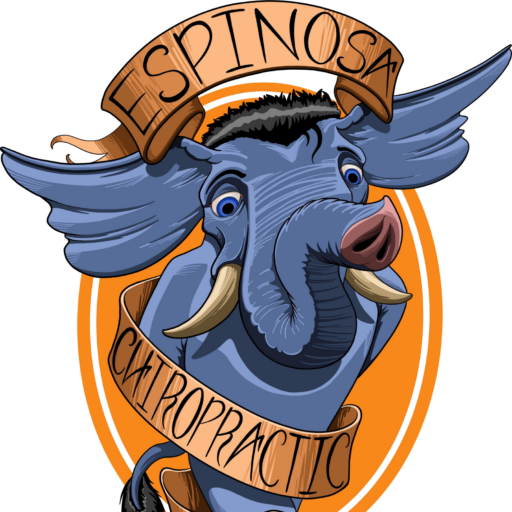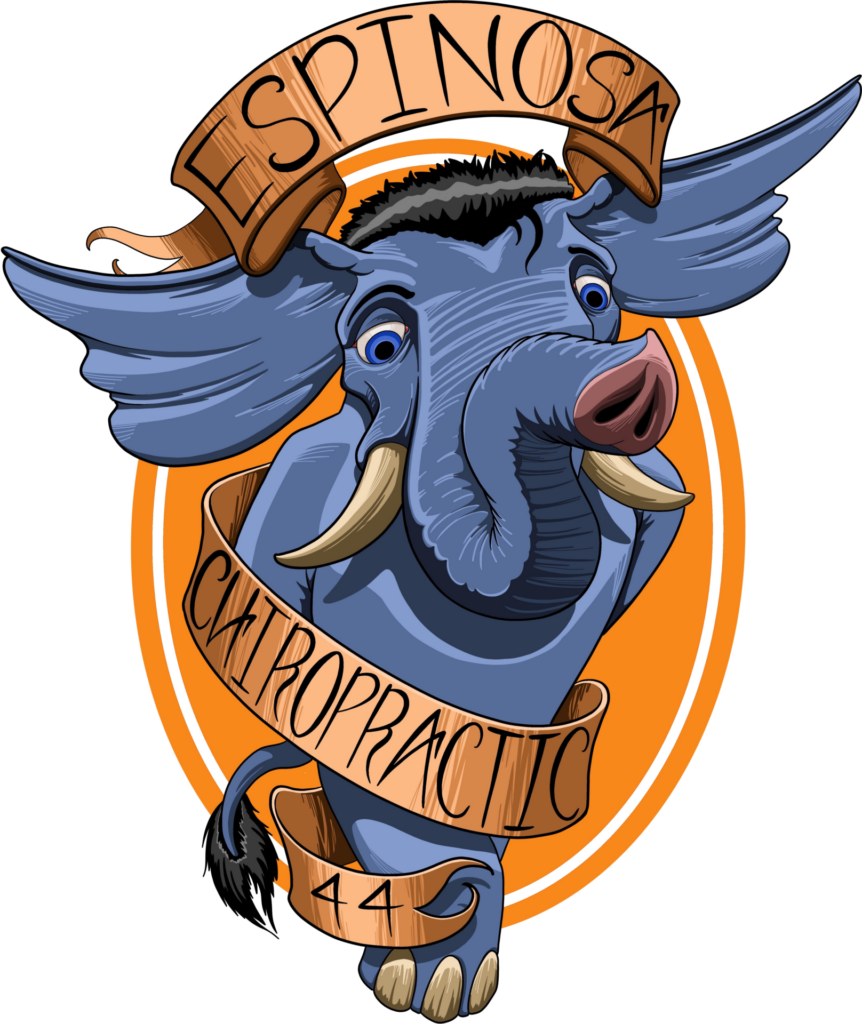Archive for August 2016
Sleep and Quality of Life

Sleep is integral to well-being. You can’t reasonably expect to feel your best or perform to your highest standard after a single night of sleeplessness, let alone chronic sleep deprivation that is the result of many more serious conditions. Sleep is linked to quality of life on so many levels because too little sleep can contribute to conditions including:
- Depression
- Chronic headaches
- Heart Disease
- Obesity
Chronic sleep deprivation takes a toll on our cognitive function and emotional center. Often, physical and mental stress overlap and to solve one, we must necessarily untangle it from the other; to sleep your best, you must feel your best. Trying to fall asleep with a pain in your neck or back can snowball into a fretful night spent tossing and turning to no avail.
At Espinosa Family Chiropractic, we help by addressing problem areas including subluxation, trigger points and strained muscles that could be preventing you from accessing deep sleep. Massage therapy is particularly effective at opening up an injurious region to an influx of oxygen and healing nutrients. Along the way, endorphins, the body’s feel good chemical, are released helping you to achieve a more relaxed mental state. From the vantage point of a healthy back, we help you turn the tide against mental stress by coming up with lifestyle adjustments to account for sleep health. Even with pain, restful sleep can be achieved with a proactive approach; give our office in Sacramento a call to start making changes today.
Dr. Raymond Espinosa, D.C.
Text Neck: A Modern Reality

Today, a topic ripped straight from the pages of the 21st century: the growing prevalence of neck injuries related to text messages. Rewind about 40 years ago and there is no way you could convince me the average human was concerned about a pocket computer creating problems for the average neck. Now, it is our reality: overuse of cell phones is creating premature degeneration of the spine. The problem involves looking down; before cell phones, the things that made us look down the most were books and the laptop computer. If we were not heeding the advice to read at eye level and arm’s length then, we certainly aren’t doing so now with cell phones.
Holding the cell phone in a manner that keeps your spine in neutral posture puts strain on the arms; it is much easier to hold the phone in your lap or at hip-level to conduct social media management. However, when we look down for prolonged periods of time, we are exponentially increasing the weight of the head in relation to the spine. The body responds by calling on all of the muscles involved with posture: from the core, to the shoulders, upper back and neck, most of your upper body has now taken on more stress. When this stress accumulates over prolonged periods of time, muscle strain is a natural outcome. From muscle strain it is a natural progression to painful muscle spasms and limitation in range of motion and flexibility.
Unfortunately, the groups most at risk are the younger generations. Various studies indicate that people between the ages of 18 and 44 cannot go 2 hours without a cell phone at their side. As a culture, the price of progress is shifting spinal problems to a younger generation. At Espinosa Family Chiropractic, we are hoping to raise awareness of this issue and get people to look up once in a while. Maybe it is not cool to hold your cell phone out in front of your face at a healthy distance, but is it cool to have back problems at age 18? We don’t think so, and to this end, we offer you our expertise and treatment in support of backs that face more challenges than ever in the fight to stay healthy.
Dr. Raymond Espinosa, D.C.
Where has all my Cartilage Gone?

Cartilage is precious: the thin layer of tissue which cushions the ends of bones in a joint, is responsible for preventing your bones from grinding on each other. This cartilage can be compromised by a host of factors including injury, the wear and tear of age, and the more insidious auto-immune disorders which cause the body to attack its own healthy tissue. Of the more than 100 types of arthritis, there are two primary types: non-inflammatory and inflammatory.
Non-inflammatory arthritis, of which Osteoarthritis is the best known, is the type whereby years of wear and tear lead to degeneration of the cartilage and inflammation ensues. Don’t let the name fool you: inflammation is created as a byproduct of the degeneration process and can be every bit as painful as the kind produced in, “inflammatory arthritis.” This is why arthritis is thought of as a disease of the elderly, with some estimates stating that 1 in 2 Americans over the age of 65 suffer from some degree of arthritis pain. However, it is important to note that 2/3 of the total people with doctor-diagnosed arthritis are between 18 and 65.
Inflammatory arthritis, best known as rheumatoid arthritis, is an autoimmune disease in which the body turns on its own tissue. As the cartilage degenerates, painful inflammation is created by the body which limits range of movement. This is most commonly felt in the wrists, hands and fingers.
A happy life with arthritis is attainable. We offer the kind of support you need to enact a plan for management of your arthritis symptoms including chiropractic adjustment and the pursuit of simple lifestyle changes to the diet and level of activity that will ensure you can live with and beyond your pain.
Dr. Raymond Espinosa, D.C.
Food for Convenience and Nutrition?

When it comes to diet in America, I think it is prudent to focus on how delicious, nutritious foods can be just as convenient and immediately gratifying as fast food. Foods like flax seeds and chia seeds are the new salmon and blueberries. They are foods that provide a full serving in 2 tablespoons but contain a range of health benefits that can boggle the brain. The verdict is in: super foods make your life simple.
Here are some of the foods that you should look for next time you make a pass through the grocery store.
- Chia seeds: omega-3 fatty acids, fiber, protein, calcium and magnesium. What could be better for a person with arthritis than something packed with anti-inflammatory and bone strengthening properties.
- Hemp seeds: protein packed, containing all the essential amino acids necessary for growth and repair of muscle and also contain omega-3 and 6 fatty acids.
- Seaweed: Before you protest, it can be cooked deliciously. And when you consider the health benefits, it becomes a no-brainer: seaweed is packed with omega-3s, and is full of minerals that are important for bone health including calcium and magnesium.
I selected these three superfoods because they all contain health properties that can be combined with a chiropractic treatment plan. Nutrition is amazing because it offers you the variety to specifically tailor a diet to your needs. Any and all of these foods can be found in concentrated forms such as powders that can be thrown into any meal for a boost. Sometimes, all it takes is a conversation to unlock the thirst for the power of nutrition in a person’s life. At Espinosa Family Chiropractic, we are here to initiate this conversation.
Dr. Raymond Espinosa, D.C.
Becoming a Work Place Hero

Honestly reflect for a second: How proactive are you in terms of spinal health at work? Do you give yourself the ergonomic support you need every hour of the day; do you take regular breaks to hydrate; do you stretch at least once an hour? An honest answer for many people is probably no: the 8 hours go by and, besides the lunch break, you were deskbound for long periods of time, allowing tension to accumulate. So how do we stop feeling stiff at the end of the day? The formula is simple and the sooner you start the better: it requires a mix of ergonomic support, hydration and nutrition, posture and regular stretching. The stretching is the part we will focus on today because it’s the best way to immediately break any tension that is accumulating.
The next time the thought strikes you, just stand up. Have a deep breath and reach for the ceiling, then stretch your arms out in front of you and hold them, with palms facing outward at full extension for about 5 seconds. Then walk to the water fountain or have a substantial drink from your water bottle. Before putting your head down and returning to work, try a stretch that works to relieve pressure in the shoulders, hips and back.
- Palms on lower back
- Push with your hands and stretch your back in the direction of your palms.
- You should know have your pelvis and lower stomach pronounced.
- Hold this position for 5 seconds and return to normal. Repeat this 3 times.
It takes about 120 seconds to become a real workplace hero in this scenario. By being proactive about your own health you influence everyone around you. A culture that revolves around healthy workplace habits makes for a more productive employee pool. Give our office in Sacramento a call if you are serious about limiting the toll that the office is taking on your spine.
Dr. Raymond Espinosa, D.C.
Caloric Balance

Counting calories is an unpleasant reality of aging. For people who spend most working days in the office, the struggle to maintain equilibrium can often tip in the favor of more calories consumed than burned. As we age and metabolism starts to slow, we start to see and feel the excess. So often the odds are stacked against us because we start at a point of disadvantage: the more weight we have to shed to achieve, the less likely we are to take the initiative and follow through with a weight loss plan. The best way we have found is to take it slow and do it together.
When envisioning and implementing any weight loss plan, we want to keep sight of the primary equation. To maintain a healthy weight, calories consumed = calories burned. For people who are modestly overweight and looking to reach their personal, “healthy weight,” it will take a coordinated effort between diet and exercise. This means limiting calories and increasing activity.
Can you cut 2.5 hours out of every week to devote to moderate aerobic activity? Can you cut out 500 calories a day to lose 1 pound per week? Perhaps that sounds drastic, so we start where you feel comfortable and build on your success. Because each person’s body is different, each person’s caloric needs are specific to the individual.
We help by keeping the structures and muscles of your body in proper working order, improving your circulation, and providing you with a natural energy boost that both improves state of mind and motivates you to get moving. From here it is a matter of small lifestyle adjustments and we help to provide an accountability and moral support team that boosts your chances of success.
Dr. Raymond Espinosa, D.C.
Swim Away the Pain

Getting wet could be your ticket to a healthier spine. We always tell people, when trying to improve the state of your spine, or to rehabilitate an injury, movement is key. Movement reduces pain, but pain reduces movement. The key is to get out of this cycle and we can help: our chiropractic adjustment will help improve range of motion and reduce inflammation so that you can get up and be active. One of the best destinations from here is the pool.
Swimming is a great, holistic exercise for the body. Low-impact and high reward, it actually strengthens joints rather than weakening them the way running does. The buoyancy of water provides support for the body by removing the pull of gravity but it also provides natural resistance as you glide through the water. The benefits are enormous.
Water therapy also removes the pressure of gravity, but gets you moving in a less exhaustive manner. Certain programs can actually be used to target your specific back pain.
Soaking is the easiest method, but it is not to be ignored. Warm water is great for healing joints, relaxing sore muscles and promoting blood circulation.
Swimming is primal and perhaps this is why we feel so good in the water. At Espinosa Family Chiropractic, we want to see people start getting wet for the sake of their spine. Call our office to schedule an evaluation of your spine to find out if swimming could be right for you! You never know until you try, and it is never too late to start.
Dr. Raymond Espinosa, D.C.
On the Airplane

The simple sight of an airplane or the thought of an airborne voyage can be enough to set some back-pain sufferers jittering with anticipation. The plane is one of the worst places for backs because of the confined spaces and poorly designed chairs. It is unfortunate that people actively avoid travelling to their dream destinations because they simply cannot put themselves through the pain of a flight. At Espinosa Family Chiropractic, we want to help you overcome this pain and get on the plane. To this end, we offer chiropractic adjustment to ensure that your back is free of subluxation and muscular imbalance that could contribute to debilitating pain. From here, we offer you our expertise on making the plane a more comfortable place to be:
- Standing up: every 20 minutes while the seat belt sign is off, stand up and walk down the aisle and back. While you’re up, keep your legs straight and reach for your toes.
- Stretching: from the chair, perform gentle neck twists, shoulder rolls and leg lifts to break the cycle of accumulating tension.
- Hydrating: drink plenty of water on the plane, to keep joints hydrated and reduce the chance of cramping.
- Using the complimentary pillow: to create as close to a properly supported resting position as may be possible, place the pillow in the curve of your lower back and sit up straight against it.
These tips will help you keep your blood circulating, helping to improve every function and system in your body. Utilizing proper posture will also help you prevent further degradation to the joints and structures of the back. For more help on creating a more comfortable travelling experience, give our office in Sacramento a call at (916) 457-8825.
Dr. Raymond Espinosa, D.C.
Healthy Vacationing

Vacation raises the spirits. boosts energy levels, and strengthens the mind’s resolve. It offers a crucial respite to the many days of work that pile on both mental and physical stress. So, are you headed to the mountains for a camping getaway? to a tropical beach to do nothing but read books and swim? or to a city you’ve always wanted to see to breathe in the culture and experience some culinary delight? Whatever your plan, these tips can help maximize your enjoyment and minimize your pain:
- Always factor in some rest! It is easy to get carried away trying to see every last thing, which leaves you mentally spun out and physically exhaustive. Balance the sight seeing with taking your time in restaurants and truly relaxing.
- Get a good pair of walking shoes: you often end up walking more than you ever imagined. A good pair of walking shoes will prevent a lot of damage to your joints and leave you feeling spry!
- Bring your own pillow: hotel pillows are often inadequate and can leave your neck feeling stiff and sore after what was supposed to be a relaxing night.
- Posture: keep it in mind! Don’t let this trip contribute to the degradation of your spinal structures or supporting muscles. Stay upright and smile!
- Stretch: whether you are travelling by plane, train or automobile, find time to break the monotony and release the accumulating tension with a few well-timed stretches.
If in doubt, call our office before your trip and schedule an examination. We can ensure your back is properly aligned and free of nerve-impinging subluxation. At the same time, we can work together to create a plan for spinal health on your travels. Give our office in Sacramento a call and see how we can optimize the enjoyment of your vacation.
Dr. Raymond Espinosa, D.C.
